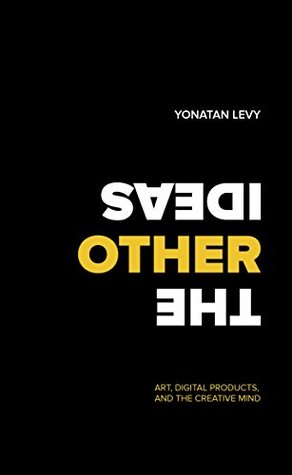Kindle Notes & Highlights
by
Yonatan Levy
Read between
April 9 - April 22, 2018
It occurred to me that it’s very rare for someone to come up with a fresh idea from nowhere, and that the mind’s “default setting” is to create “new” ideas by putting together easily-connectable preexisting ideas.
All such reactions can evolve into work, but the reaction itself is paramount: if we don’t react, the trigger might remain in our imagination forever.
The downside to working from certainty is that the more certain we are about what we’re doing, the more we tend to achieve similar results over and over again. Even if these results turn out to be reasonably well received, we will still be captives within the world of the mundane. To get out of this loop and open the door for Other Ideas, we must embrace the second type of work: uncertain.
We freak out when we get lost. As soon as we don’t know where we are and where we’re heading, our strong attraction to certainty and familiarity takes over. We almost can’t help it; we’re hardwired this way. The brain craves certainty—it’s a product of our evolution, a part of our survival instinct.
By remaining in the realm of uncertainty, we might just find an interesting new path leading to our desired destination—one we never would’ve found while driving on the main road.
Even if your initial idea is shaky and you feel it’s just not good enough—which happens to us all—start working with it anyway. Jump right in and start experimenting: better ideas will come. Yes, this will feel counterintuitive. Yes, this may even initially feel a like a waste of precious time. But in any product development role, you will have deadlines and tight roadmaps to follow—you can’t afford to sit around waiting for inspiration. Again, the vast majority of the time there will be no “eureka” moment, no bolt of lightning that will zap an Other Idea into your mind; more often than not,
...more
When we don’t have a problem to solve, we don’t feel a sense of urgency or a need to demand inspiration. We don’t feel a need to change things, challenge ourselves, widen our perspectives, or strive in any meaningful way for something greater.
Seeking out and identifying discomfort should become a part of our everyday perspective, but product developers can’t rely on chance discovery. In order to inspire exceptional ideas, we need to intentionally create uncomfortable situations, which will ignite a sense of urgency within. This urgency will help us solve the problem at hand, because urgency forces us to be our best and tap into our most inventive capabilities. Urgency helps us form Other Ideas.
Even when you’re in a moment where you feel fatigued and cynical, even if the product you’re tasked to develop seems boring, you can always push yourself to find the unexplored creative space within the materials at hand.


